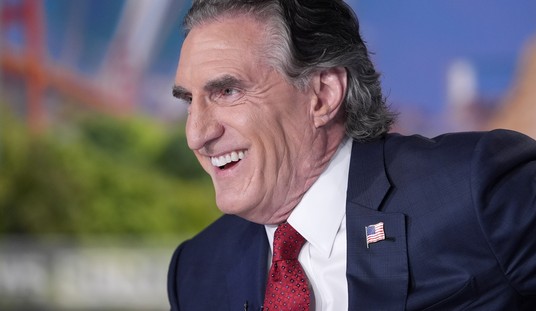Bret Weinstein has always described himself as a progressive person, but he’s also someone who has personally gone through the meat-grinder of far-wing identity politics as they exist on some college campuses. That has given him an interesting perspective on some questions that often aren’t discussed very openly in the public sphere.
A few days ago, Weinstein was interviewed by Benjamin Boyce on the 3rd anniversary of the takeover of the campus at Evergreen State College. The discussion isn’t a rehash of those events – it’s actually about the cultural impact it had beyond the campus. On that point, Weinstein argues that there was a kind of unspoken rule being promulgated by the far left which needed to be challenged.
“There’s this notion that when a person with a credible claim to have come from a history of oppression speaks about the present that the obligation is simply to listen and to accept the truth of what they are saying about what they currently face without asking for evidence or without probing to see whether or not their analysis is robust,” he said. He continued, “What was unsayable was that that system cannot function that way. And the reason it cannot function that way is because that system is a beacon for bad actors who wish to abuse that privilege and use it to wield power over others.”
Weinstein pointed not just to students on campus but to Jussie Smollett as an example of the kind of thing he’s talking about. Unscrupulous people will see an advantage to be gained and they will step forward to claim it. He argues that what happened at Evergreen became a central part of that conversation.
Later in the discussion, Boyce asked how Weinstein maintains his understanding of social justice as an idea from the “kooky version” promulgated at Evergreen State. On that point, Weinstein replied that the “biggest favor [Evergreen] could do is to stay out of the conversation, frankly, going forward.” But he said that if you were to “forget the garbage version” circulated on the far left that “we could talk about features of the landscape that enable people from certain demographics to more easily rise economically then people from other demographics.”
“I don’t like the framing that this is a question of fixing the concept of social justice. What happened is the people who used that term took an honorable program that was addressing, over time, it was addressing the structural inequities that actually do exist and they hijacked it for illegitimate purposes, for an authoritarian program that turned the college on it’s head. And I don’t really want responsibility for fixing their nonsense.”
Weinstein went on to say that as much as he disagrees with the student protesters and their goals he thinks they are expressing a frustration over problems that are real problems which, from their perspective, are not being resolved quickly enough. That frustration led them to demand immediate change and to adopt an authoritarian tone.
But from Weinstein’s perspective there are nearly opposite blind spots related to issues of race on either side of the political spectrum. “It’s very interesting to see close up what the blindspots are on both sides. There’s a focus on the right, a focus that I think is mostly honorable, on personal responsibility. But the right does not in general understand the limits of personal responsibility and that which it can address. To my friend on the right I’m very frequently in the position of having to make this point which is that, yes, personal responsibility is vital but in order for it to have the full effect that one would want from it has to function in a system that is well-structured.”
As for the other side of this equation, Weinstein said, “My friends on the left seem to have the inverse blind spot. Their blind spot is very focused on collective well-being and the structure of the system to the point that they don’t even see differences between individuals as having any role to play in success. And so, this is a mind-numbing misunderstanding.”
He concludes by saying that he believes both systemic issues and personal responsibility have a role to play. The goal is to make the system function well such that personal responsibility achieves the best outcome for the most people. That makes sense to me but of course the devil is in the details and it often seems to me that the proposals put forward on the left for improving the system often come at the expense of personal responsibility. In some cases they are almost literally asking the responsible to pay a toll for the irresponsible, which seems like a bad outcome.
Here’s the full clip, this discussion comes about 20 minutes in but the rest of the discussion is interesting if you like this sort of thing.








